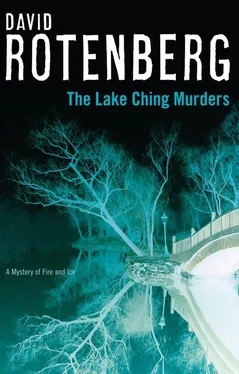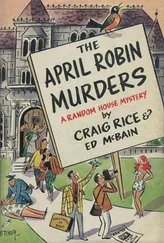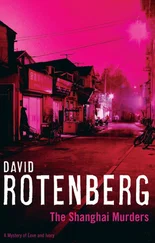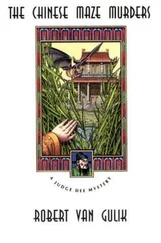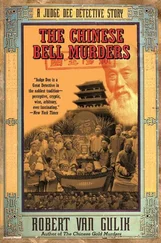David Rotenberg - The Lake Ching murders
Здесь есть возможность читать онлайн «David Rotenberg - The Lake Ching murders» весь текст электронной книги совершенно бесплатно (целиком полную версию без сокращений). В некоторых случаях можно слушать аудио, скачать через торрент в формате fb2 и присутствует краткое содержание. Год выпуска: 2011, Издательство: Schwartz Publishing Pty. Ltd, Жанр: Исторический детектив, на английском языке. Описание произведения, (предисловие) а так же отзывы посетителей доступны на портале библиотеки ЛибКат.
- Название:The Lake Ching murders
- Автор:
- Издательство:Schwartz Publishing Pty. Ltd
- Жанр:
- Год:2011
- ISBN:нет данных
- Рейтинг книги:5 / 5. Голосов: 1
-
Избранное:Добавить в избранное
- Отзывы:
-
Ваша оценка:
- 100
- 1
- 2
- 3
- 4
- 5
The Lake Ching murders: краткое содержание, описание и аннотация
Предлагаем к чтению аннотацию, описание, краткое содержание или предисловие (зависит от того, что написал сам автор книги «The Lake Ching murders»). Если вы не нашли необходимую информацию о книге — напишите в комментариях, мы постараемся отыскать её.
The Lake Ching murders — читать онлайн бесплатно полную книгу (весь текст) целиком
Ниже представлен текст книги, разбитый по страницам. Система сохранения места последней прочитанной страницы, позволяет с удобством читать онлайн бесплатно книгу «The Lake Ching murders», без необходимости каждый раз заново искать на чём Вы остановились. Поставьте закладку, и сможете в любой момент перейти на страницу, на которой закончили чтение.
Интервал:
Закладка:
Fong wanted to say, “I’m impressed,” but didn’t. “I assume you use the same principles to piece together the terra-cotta warriors?”
“I do, indeed,” the archeologist asserted, as if he were being challenged on some fundamental level. His smile was no longer warm. His eyes were piercing. “You too have a unique talent, Detective Zhong. In some ways we are very similar.”
“I don’t follow that.”
“Really?” Dr. Roung’s voice arched upward. “I piece together puzzles. You piece together puzzles. I am treated differently by the Chinese state than most other Chinese males and so are you. After all, how many murderers are allowed to return to the civilized side of the Wall?”
Fong didn’t respond.
The archeologist wasn’t put off by Fong’s silence. “You do agree, don’t you, Detective Zhong?”
Fong tilted his head slightly. Not a real agreement – but enough.
“Good. Then perhaps you’d help me solve a puzzle that’s been bothering me for a very long time, Detective Zhong.” The man seemed suddenly joyful.
Again Fong tilted his head, wondering where this was leading.
Dr. Roung crossed to the shelf behind his desk and pulled down an old, leather-bound book from an upper tier. “Have you read the Italian’s account of ‘discovering’ China?”
“Marco Polo?” Fong asked. Dr. Roung nodded and handed over the well-thumbed text. Fong felt the heft of the thing. It was pleasing.
“Such an odd name, Marco Polo, don’t you agree? Sounds like a child’s food.”
Fong allowed himself a smile despite being totally at a loss as to what was going on. He handed back the book. “Yes, I read this in English. It was part of my training in that language.”
“So you are perfectly prepared to help me with my puzzle.” The man seemed gleeful.
“If you say so,” Fong said warily.
“I do.” He clapped his hands once loudly. “Well, every Chinese person who reads this silly account knows in his heart that it’s a lie. A joke played on some European master by this person with a name that sounds like baby food. Do you agree?”
“Yes,” Fong said without hesitation.
“Good. I hoped you would. Now, tell me how we know that this book is a lie? Know in our heads, not in our hearts.”
Fong thought for a moment. “Because of what Marco Polo left out.”
“Because of what wasn’t in the text?” the archeologist asked, openly fascinated by the idea.
“Yes,” Fong said slowly.
“Like what, Detective Zhong? What was missing in the book?”
Fong looked for a trap but couldn’t find one. Finally he spoke, “How could a man from the West who claimed to have lived in the Middle Kingdom for almost ten years fail to mention in his books the Great Wall, our character system of writing or for that matter, the tiny, bound feet of aristocratic women? How could these fail to impress him? How could Marco Polo have been here and not seen fit to include them in his account? Don’t you find that odd?” He was happy to be asking the questions.
“I do, Zhong Fong.” Dr. Roung smiled warmly. “Now that you mention it . . . I do.” He laughed. An odd, honest laugh. “But before you brought it up, it had escaped my attention.” He took a deep breath as if he was about to cross an invisible divide. He reached up and took off his army-issue spectacles. “I create whole things from their many pieces. It is my gift. Yours, Zhong Fong, is to create whole things from those pieces that are missing. It is another kind of gift. A photo negative of my gift, if you follow.”
Fong considered Dr. Roung’s statement and found some truth in it. More important, for the first time he sensed the man’s deep need to talk. To talk to someone he saw as an equal.
Fong hesitated. Unsure how to lead the conversation.
“Would you like to see my terra-cotta warriors, Zhong Fong?” Dr. Roung said in a surprisingly gentle voice.
It wasn’t lost on Fong that the archeologist hadn’t called him detective. “I would. I would like to see your warriors.”
As Dr. Roung walked ahead of him, Fong realized that he was following a man who had secrets – dark secrets that he needed to share with an equal – with someone who understood his worth.
With the simple flip of a light switch Dr. Roung brought the great sleeping contents of pit #1 to life. Row upon row of standing and kneeling men. Archers, horsemen, foot soldiers – each with its own face. An eerily silent army just about to move or having just moved, only to be stunned into immobility by the rising of the light. The famous terra-cotta warriors – the lasting memorial of Qin Shi Huang, China’s first emperor.
Fong and the archeologist stood on the gallery above the ranks of frozen men. “In April of 1974 I was called by the Ministry of the Interior. Some stupid farmer outside of Xian had reported discovering a few artifacts in his field,” Dr. Roung chuckled. “I thought it would take me a week at most to deal with what I assumed was a useless piece of junk. My first night here I was brought to a peasant’s hut. The old woman had two terra-cotta heads set up beside her fireplace. She was worshipping them as gods. And you know what, Zhong Fong?” Fong looked at him. “I understood why she’d do that. In my heart it seemed to me that those two old heads were as worthy of adoration as anything I’d ever seen – up until that time.” The final words were only wisps of sound – the heart’s breath.
Fong repeated the final four words: up until that time. He’d never heard any admission of loss so deep. He looked at the man. Tears were coming from his eyes.
“It took two years, but by the middle of 1976, my team had unearthed three full pits. A fourth was found late in 1977, but it was empty. Pit #1, down there, has thirty-eight columns of soldiers. Naturally, they all face east. There were originally over six thousand figures. We’ve managed to restore just over a thousand warriors and horses. Pit #2 has fifteen sections. We opened it to the public in 1976 then closed it down.”
Fong was about to ask why when the archeologist beat him to the punch. “You always leap ahead, Zhong Fong.” He wiped the tears from his cheeks with a fine linen handkerchief. “I may get to that in time. Working on the Qin Dynasty warriors teaches patience, if nothing else. Do you know your history, Zhong Fong?” Before Fong could reply, he continued, “Qin Shi Huang declared himself China’s first emperor in 221 BC – this is his tomb. He must have been quite a man. He defeated the six major warring states of China and ascended a throne that he built. He quashed all resistance from the nobles and set to work unifying a land mass that had never been unified before. He established the civil service system complete with examinations and meritocracy, which lasted over two thousand years, right up to the fall of the Manchu government in 1911. He codified weights and measures to permit commerce in the country. He standardized the written language that you and I use to this day. True, he burned any books that were in opposition to his rule, but then again the world has a long tradition of book burners, doesn’t it?”
Dr. Roung reached into his pants pocket and took out a greenish-bronze coin. “He instituted the use of currency. This bronze ban liang coin was his creation. We found thousands of them in the pits. They were good for commerce – and taxes, of course. So much easier to collect money than rice. Qin Shi Huang built the Great Wall to keep them away from us. More recently, you, Fong, from me. And he raised a great army by the use of this clever little invention.” From his pocket he produced the small bronze statuette of the frontquarters of a horse that Fong had seen on the desk. He must have palmed it before they left the office. Fong wondered how he’d missed that. “He gave a half to each of his generals. They could only raise troops when they were met by the emperor’s man who had the other half that fit his. In a time of limited communication it allowed the emperor to control the most important communications – those that led to the raising of troops – of potential insurrection.”
Читать дальшеИнтервал:
Закладка:
Похожие книги на «The Lake Ching murders»
Представляем Вашему вниманию похожие книги на «The Lake Ching murders» списком для выбора. Мы отобрали схожую по названию и смыслу литературу в надежде предоставить читателям больше вариантов отыскать новые, интересные, ещё непрочитанные произведения.
Обсуждение, отзывы о книге «The Lake Ching murders» и просто собственные мнения читателей. Оставьте ваши комментарии, напишите, что Вы думаете о произведении, его смысле или главных героях. Укажите что конкретно понравилось, а что нет, и почему Вы так считаете.
